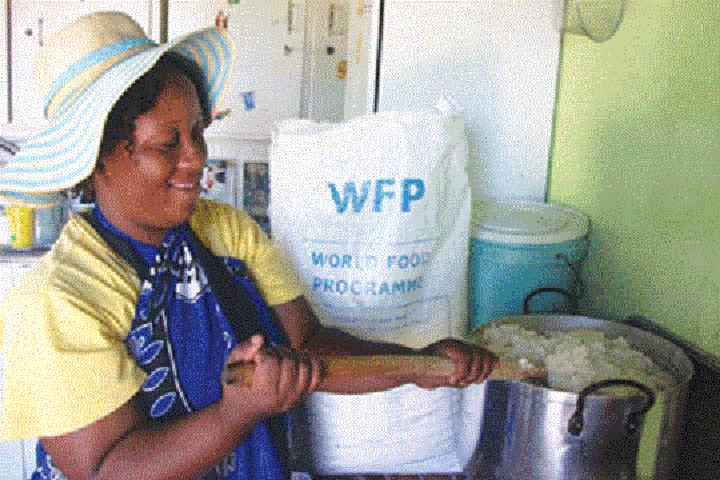Africa-Press – Lesotho. World Food Programme (WFP) has said it needs about M200 million ($13.2 million) to support the most vulnerable people experiencing acute food insecurity for six months until June 2021.
WFP is the food-assistance branch of the United Nations (UN). It is the world’s largest humanitarian organization, the largest one focused on hunger and food security, and the largest provider of school meals.
In its recent country brief, WFP indicated that in efforts to support the most vulnerable people in urban areas who are affected by the impacts of COVID-19 pandemic, it provides cash assistance to a total of 8 500 households.
These households, it said, represent 34 000 people, 52 percent female, in the urban councils of Maseru, Mafeteng, Mohale’s Hoek, Quthing and Qacha’s Nek districts.
“Each household is entitled to M831 per month,” it said. On Wednesday, January 13 midnight, Lesotho moved into a second total nationwide lockdown to curb the spread of the coronavirus. As at January 15, there were 6 371 confirmed cases of COVID-19, and 93 Coronavirus-related deaths.
As part of its lean season response, WFP said it assisted a total of 6 300 vulnerable households, representing 25 200 people, 52 percent female, from the rural districts of Mokhotlong and Thaba-Tseka.
They were assisted through commodity vouchers redeemable at local retail shops and mobile cash transacted through Vodacom Lesotho’s Mpesa platform. “Each household receives a monthly entitlement amounting to M811,” WFP said.
“A total of 201 960 people (75 percent of plan) under the crisis response remains without support due to funding constraints,” it added. With the closure of schools since March 2020, WFP said it had been providing take-home rations of canned fish to a total of 30 473 learners.
It also indicated that it finalised the distribution of Super Cereal Plus, a nutrient dense breakfast cereal to a total of 17 779 pre-school learners (8 717 boys and 9 062 girls).
All ten districts of Lesotho, according to WFP, are currently classified to be in Integrated Food Security Phase Classification (IPC) 3 or worse, with some 582 000 people in rural areas and a further 184 000 people in urban contexts experiencing acute food insecurity.
IPC is the global metric for food insecurity and malnutrition. IPC phase 3 means “highly stressed and critical lack of food access with high and above–usual malnutrition and accelerated depletion of livelihood assets that, if continued, will slide the population into phase four or five and/or likely result in chronic poverty”.
To enhance operationalisation of the Country Strategic Plan (2019-2024), WFP said it was developing a Country Capacity Strengthening Strategy (CCS). “The development of the strategy is done in collaboration with key stakeholders and partners and is expected to guide WF’s capacity-strengthening efforts in the areas of coordination, design, implementation and monitoring of some key government programmes,” it said. It further explained that consultations and information sharing sessions around the CCS were held with the partners on December 15 and 16, 2020.
For More News And Analysis About Lesotho Follow Africa-Press






